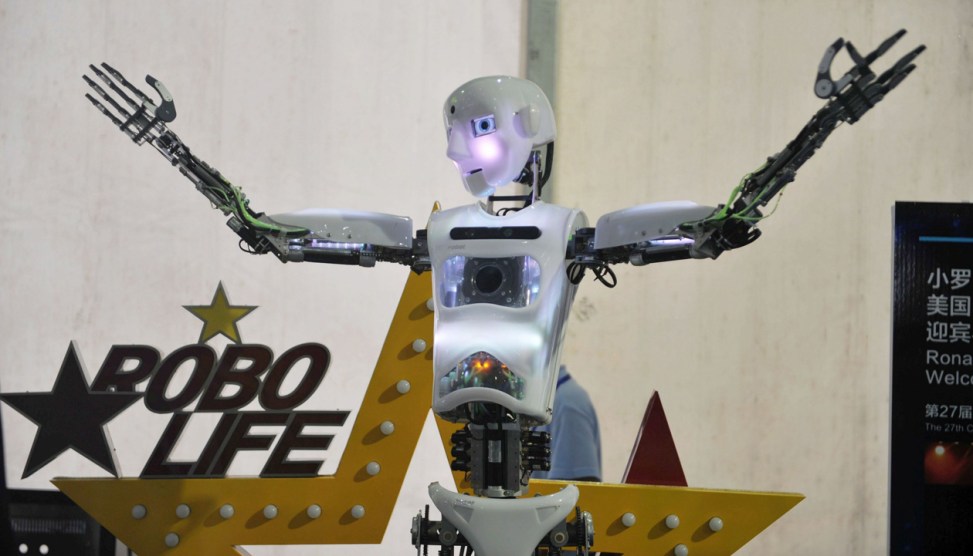
Look at me! I'm cute. Don't worry, I will never screw up your election returns.SIPA Asia via ZUMA
With today’s Trump O’Clock news seemingly out of the way, I want to make one more comment about James Surowiecki’s robot story in Wired. There’s one issue he highlights that deserves more attention than it gets:
The peculiar thing about this historical moment is that we’re afraid of two contradictory futures at once. On the one hand, we’re told that robots are coming for our jobs and that their superior productivity will transform industry after industry. If that happens, economic growth will soar and society as a whole will be vastly richer than it is today. But at the same time, we’re told that we’re in an era of secular stagnation, stuck with an economy that’s doomed to slow growth and stagnant wages. In this world, we need to worry about how we’re going to support an aging population and pay for rising health costs, because we’re not going to be much richer in the future than we are today. Both of these futures are possible. But they can’t both come true. Fretting about both the rise of the robots and about secular stagnation doesn’t make any sense. Yet that’s precisely what many intelligent people are doing.
The irony of our anxiety about automation is that if the predictions about a robot-dominated future were to come true, a lot of our other economic concerns would vanish. A recent study by Accenture, for instance, suggests that the implementation of AI, broadly defined, could lift annual GDP growth in the US by two points (to 4.6 percent). A growth rate like that would make it easy to deal with the cost of things like Social Security and Medicare and the rising price of health care. It would lead to broader wage growth. And while it would complicate the issue of how to divide the economic pie, it’s always easier to divide a growing pie than a shrinking one.
This is totally true. But I don’t think it’s quite as paradoxical as Surowiecki says. I fret about both those futures, and it makes sense because I’m not 100 percent sure about the future of artificial intelligence. If you asked me to put a number to it, I’d say I’m 80 or 90 percent sure that it’s coming in the next two or three decades, and that it will, in fact, render concerns about Social Security and health care obsolete. My biggest concern—about which I’ll have more later—is the near-term transition period: what happens during the years from, say, 2025 to 2045, when workers are being disemployed in big numbers but we haven’t quite gotten to the point of figuring out how to give them all decent incomes?
However, I’m still 10 or 20 percent unsure about all this. Maybe AI won’t come for another century. In that case, we still have to worry about Social Security and health care. It always makes sense to have a backup plan, doesn’t it?















